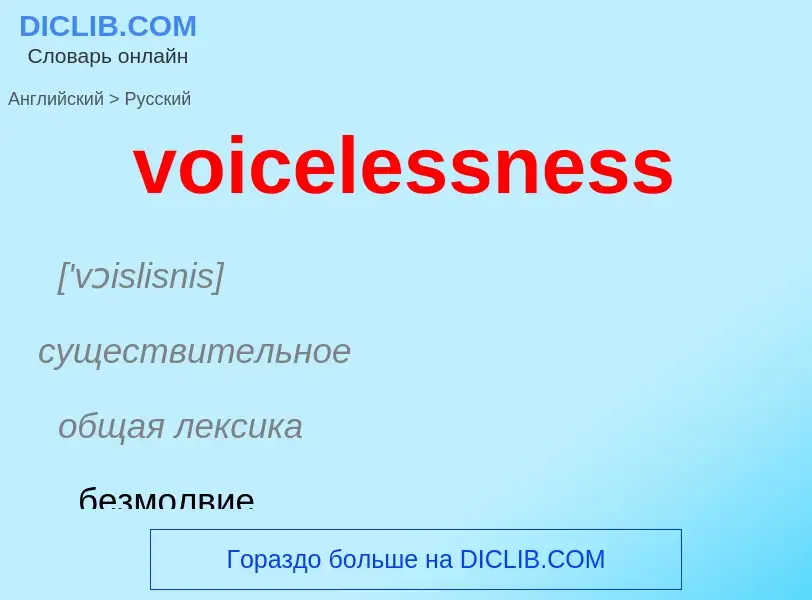Traducción y análisis de palabras por inteligencia artificial ChatGPT
En esta página puede obtener un análisis detallado de una palabra o frase, producido utilizando la mejor tecnología de inteligencia artificial hasta la fecha:
- cómo se usa la palabra
- frecuencia de uso
- se utiliza con más frecuencia en el habla oral o escrita
- opciones de traducción
- ejemplos de uso (varias frases con traducción)
- etimología
voicelessness - traducción al ruso
['vɔislisnis]
существительное
общая лексика
безмолвие
немота
безголосица (певцов)
фонетика
глухость (согласного)
['vɔislis]
общая лексика
безголосный
прилагательное
общая лексика
безгласный
безмолвный
немой
безголосый (о певце)
не имеющий возможности или желания выразить своё мнение
не имеющий голоса, потерявший голос
безгласный, немой
фонетика
глухой (о звуке)
глухой
Definición
Wikipedia
In linguistics, voicelessness is the property of sounds being pronounced without the larynx vibrating. Phonologically, it is a type of phonation, which contrasts with other states of the larynx, but some object that the word phonation implies voicing and that voicelessness is the lack of phonation.
The International Phonetic Alphabet has distinct letters for many voiceless and modally voiced pairs of consonants (the obstruents), such as [p b], [t d], [k ɡ], [q ɢ], [f v], and [s z]. Also, there are diacritics for voicelessness, U+0325 ◌̥ COMBINING RING BELOW and U+030A ◌̊ COMBINING RING ABOVE, which is used for letters with a descender. Diacritics are typically used with letters for prototypically voiced sounds, such as vowels and sonorant consonants: [ḁ], [l̥], [ŋ̊]. In Russian use of the IPA, the voicing diacritic may be turned for voicelessness, e.g. ⟨ṋ⟩.

